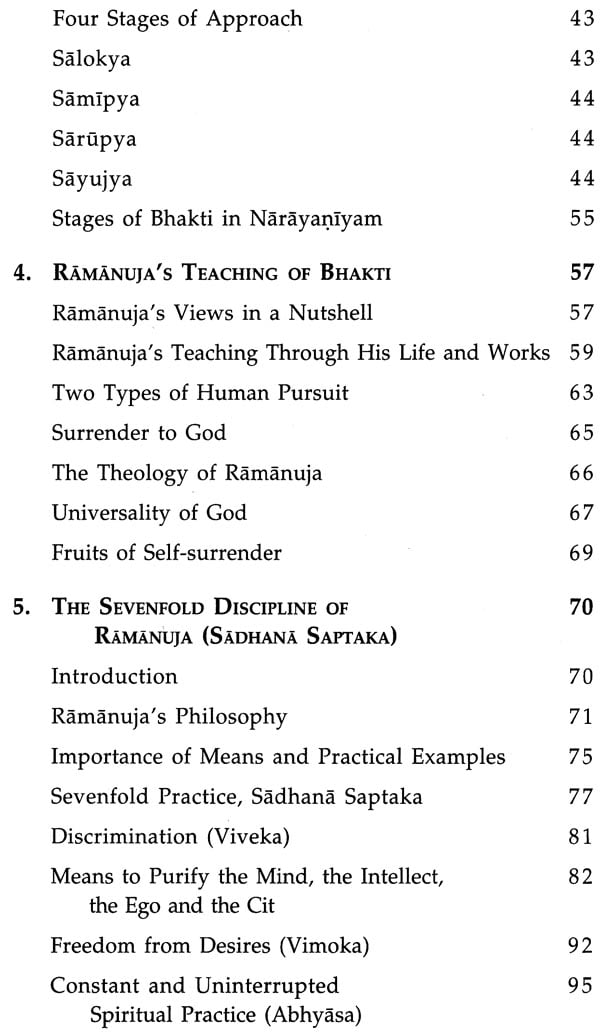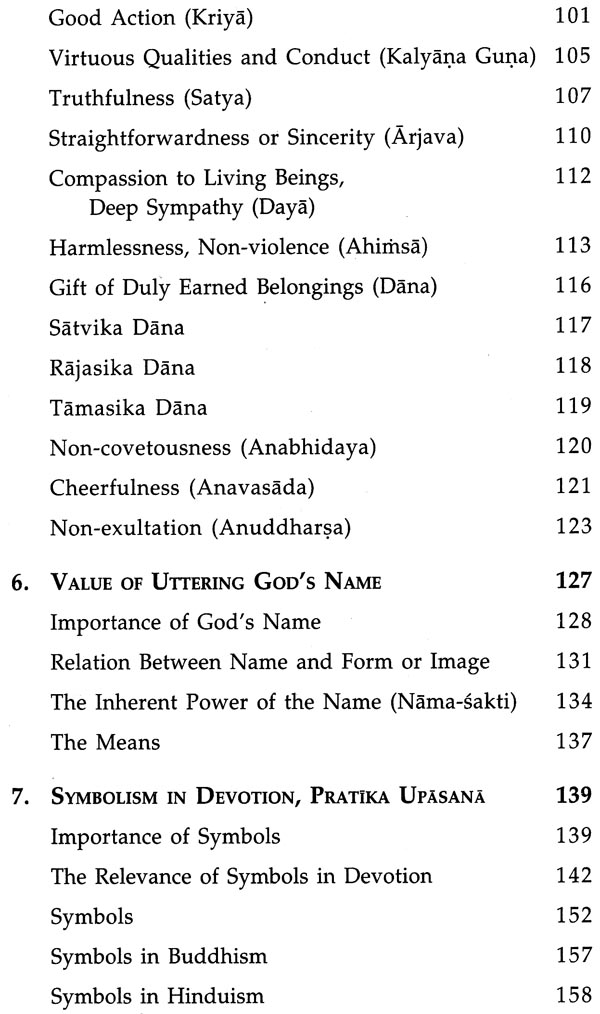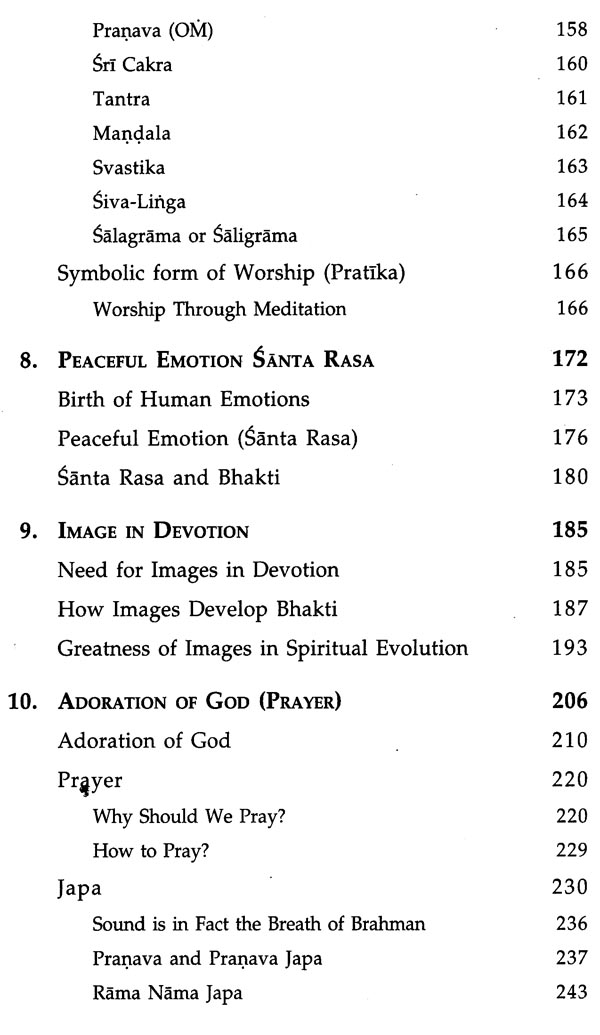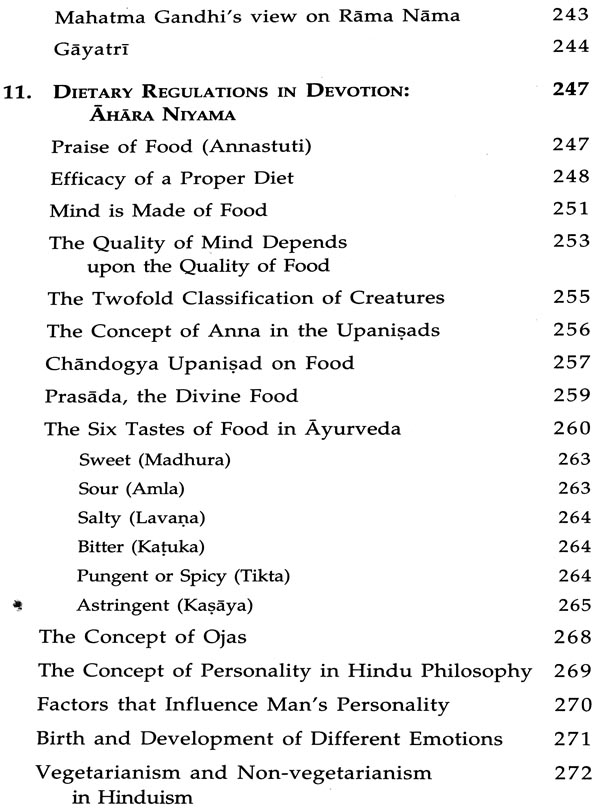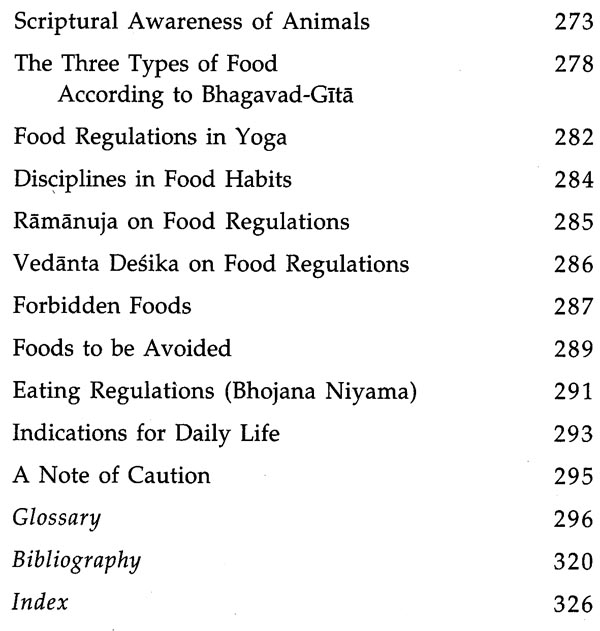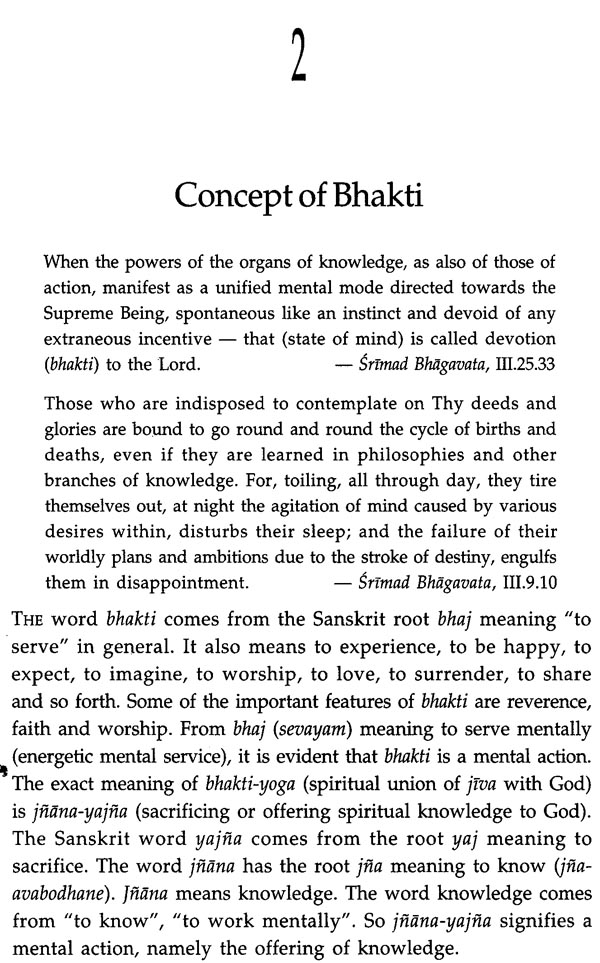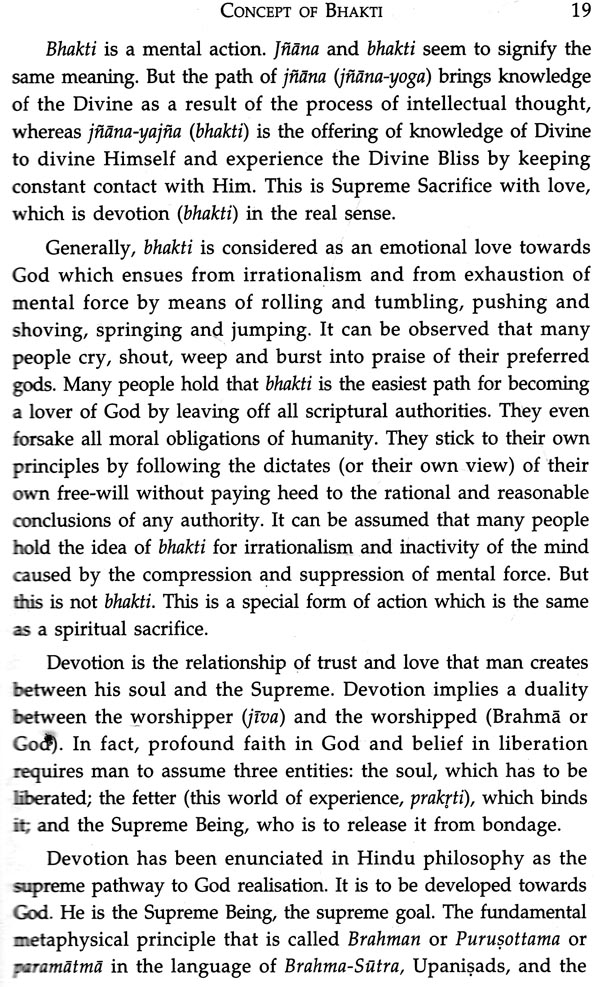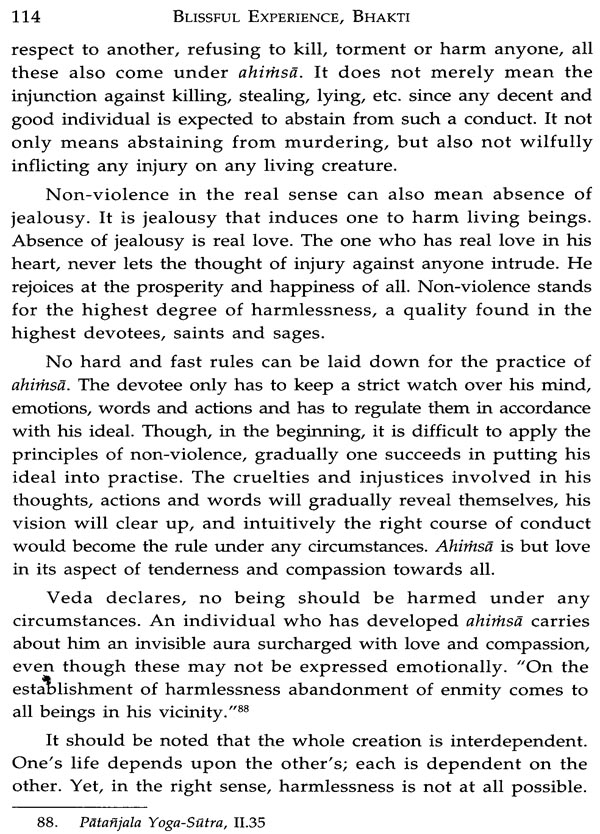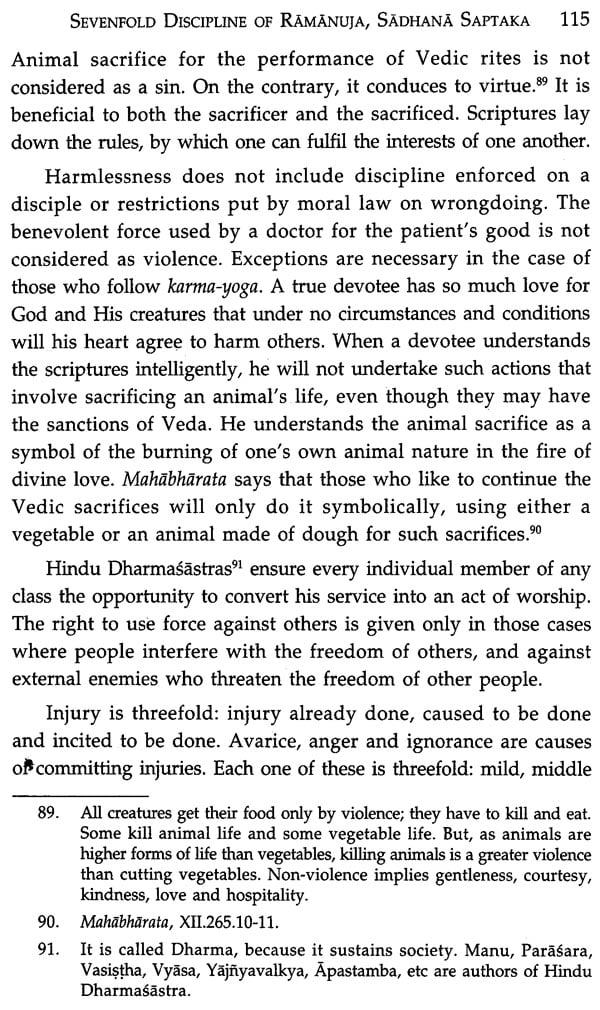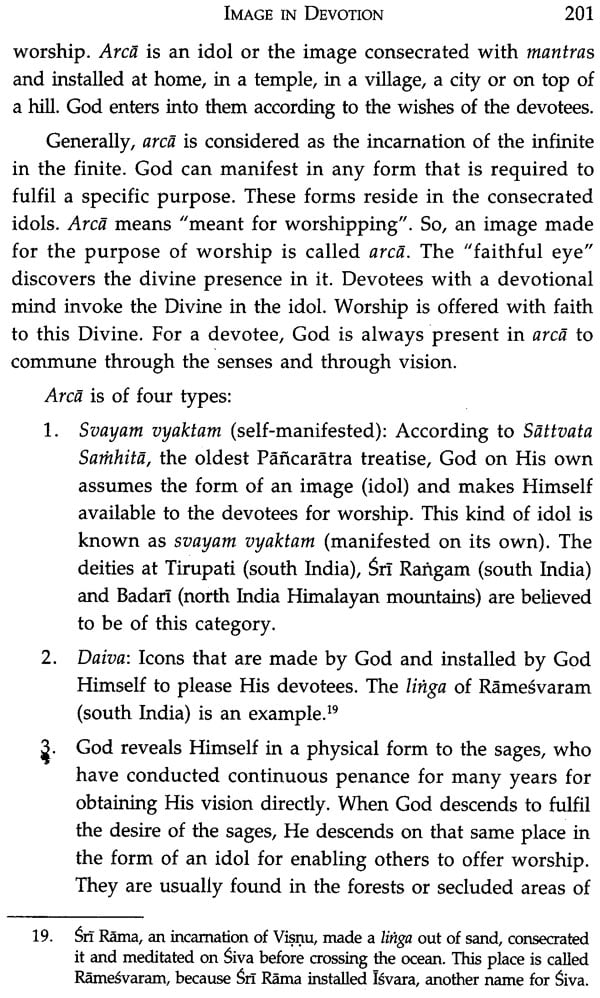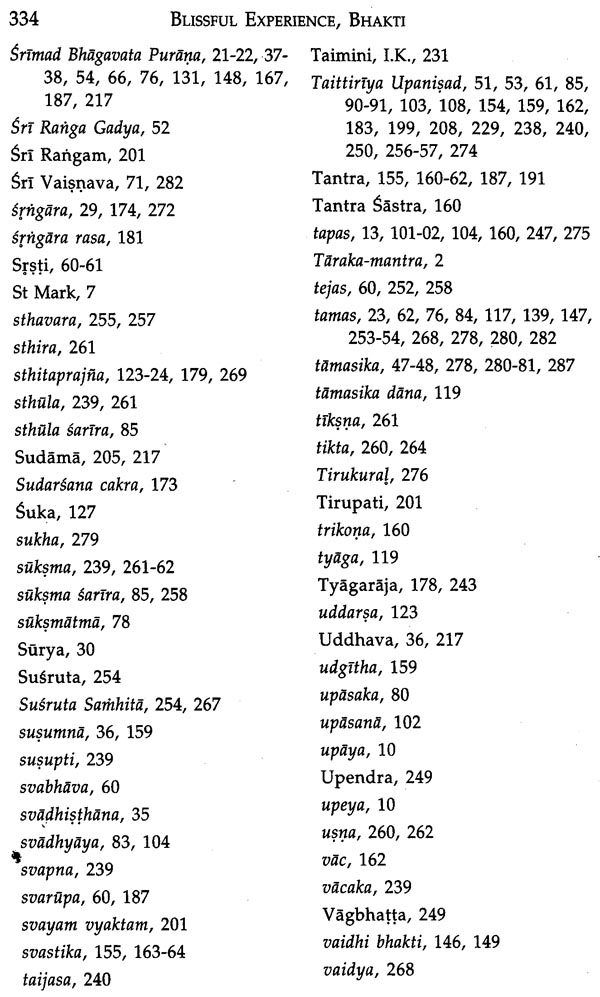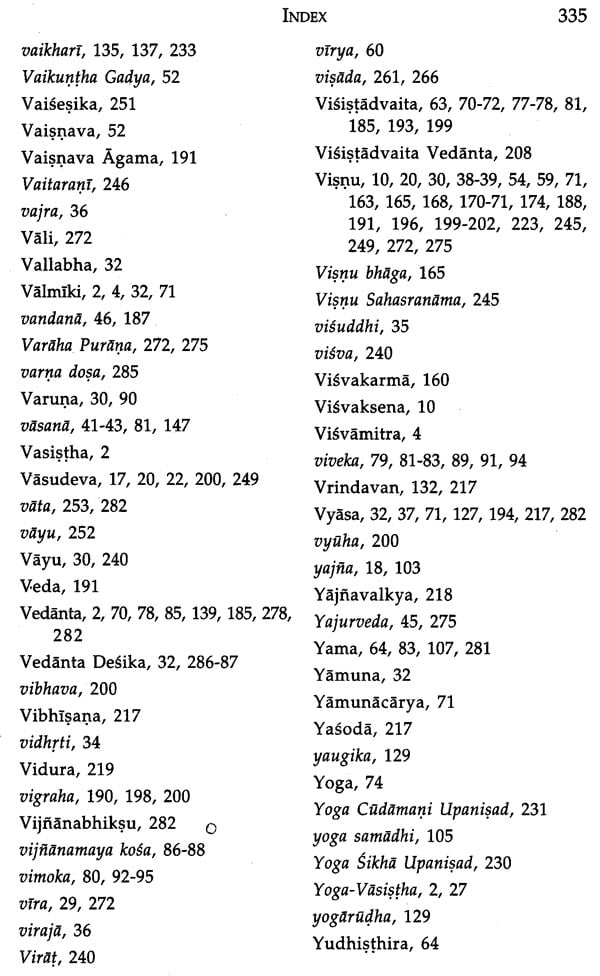
Blissful Experience Bhakti: Quintessence of Indian Philosophy
Book Specification
| Item Code: | NAV854 |
| Author: | T.K. Sribhashyam & Alamelu Sheshadri |
| Publisher: | D. K. Printworld Pvt. Ltd. |
| Language: | English |
| Edition: | 2012 |
| ISBN: | 9788124606148 |
| Pages: | 354 |
| Cover: | PAPERBACK |
| Other Details | 8.50 X 5.50 inch |
| Weight | 500 gm |
Book Description
This book examines the views of Visistadvaita of Ramanuja on bhakti and prapatti (self surrender). It studies in-depth the meaning of God, the soul and the Supreme Soul, and the world; the concept of bhakti; the different stages of bhakti referring to numerous sources that include the Vedas , the Bhagavad-Gita, the Upanishads and the Puranas. It focuses on Ramanuja’s teaching of bhakti, examining his philosophy in general and his sevenfold practice, Sadhana Saptaka to generate bhakti that expounds the qualities and significance of discrimination for viveka, freedom from sensual attachment or anger for securing vimoka, repeated reflection of God, performance of religious duty for inner mental strength, development of ethical virtues, freedom from despair and freedom from excessive joy. It understands the relevance of symbols in devotion and examines nature and use of symbols in Buddhism and Hinduism. The scholarly study discusses the importance and cultivation of peaceful emotions, and need for prayer and dietary regulations in devotion.
The volume will prove an indispensable work for scholars of Indian philosophy and religious studies.
Mrs. Alamelu Sheshadri, second daughter of Shri T. Krishnamacharya, is graduated from Mysore University. Shri T. Krishnamacharya initiated her to Yajurveda, taught her all major Upanishads, Brahmasutras and the Bhagavad-Gita in the traditional way. He also trained her in yoga, both practically and philosophically. From 1985 until 1989 she continued studying many philosophical subjects, especially Visistadvaita.
- An invocation to Lord Hayagriva, the God of knowledge and wisdom
MIND is like the wandering moon. There are always fluctuations in the emotional conditions. This is natural in all living beings. However, man is capable of stabilizing his emotional agitations by personal efforts through various methods. The easiest and successful way is to make sincere appeal to God with love. This type of emotional loving approach to God is bhakti (devotion).
Bhakti is supreme love to God. Love springs from God and enters into the human heart. The abundant treasure of God’s love is hidden in the human heart. That is to say, the human heart is overflowing with God’s love. Man has only to realise this wealth of God’s love in him and feel its richness. God shelters man from the scorching miseries of life, when man clings to God. Loving shelter from God is the reward of bhakti practice. Showering a brilliant light amid gloomy darkness, radiating the sweet fragrance of life, bringing reconciliation to all contradictions are (some of) the gifts of bhakti, in spite of innumerable contradicting views. Bhakti is the golden bridge which links man on earth to the divine paradise. To train the mind for divinity, there is no road equal to devotion. Words fail to bring out the pleasure of devotional practises (bhakti sadhana).
Complete trust in God is capable of making man remain unconcerned to the problems of life, as they just pass off by themselves by God’s grace.
Only a man who knows the place can tell the right direction to reach it. Our father, T. Krishnamacharya infused bhakti in his children and in his disciples right from the beginning. God’s blessings and our father’s sailing grace helped us to move on in this writing.
In the name of God, this work is dedicated to our father (our guru) with profound respect and gratitude. In a work on bhakti, it is unavoidable to use Sanskrit terms. The use of such terms is minimised and the nearest English equivalent is provided. An exhaustive glossary is appended. This work does fall short of the degree of excellence that might be attained.
We offer our deep gratitude to Cornelia Heyde from Germany for the sincere interest she has taken in our writings, going through the major part of this work, offering useful and valuable comments and thus helping in the completion of the work.
We owe our recognition to Shri Susheel K. Mittal of D.K. Print world who took personal interest in publishing this book. Without his support this edition would never have appeared. We express our sincere thanks to Mrs. Brigitte Khan from Switzerland for her patient proof-reading.
We owe our sincere thanks to all our well-wishers who helped us in one way or the other to make this book come to light. We offer a reverent salutation to India, our native land, nourishing mother of many religious and philosophical thoughts. Above all, there is the grace of God.
Book's Contents and Sample Pages

